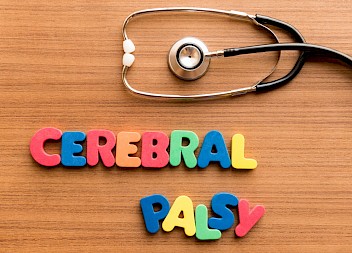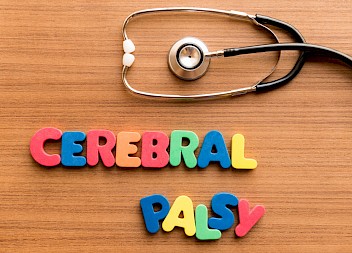Bringing a Cerebral Palsy Negligence Claim
What medical negligence can lead to cerebral palsy?
The major causes of cerebral palsy compensation claims due to medical negligence include:
• A failure to assess foetal condition (by CTG and other means) before or during labour resulting in delayed delivery, thus depriving the baby’s brain of oxygen
• Delay in performing an instrumental delivery by ventouse or forceps
• A traumatic instrumental delivery
• Delay in performing an emergency C-section or mistakes in managing the procedure.
• Failure to identify placental problems like placenta praevia or placental abruption
• Ruptured uterus during labour
• A cord prolapse
• Poorly managed induction of labour
• Failure to diagnose or manage low blood sugar (hypoglycaemia) during labour or post-partum
• Failure to diagnose and treat maternal or neonatal jaundice
• Delay in diagnosis or management of serious medical conditions such as neonatal meningitis
What could a cerebral palsy claim be worth?
A successful compensation claim will include, first and foremost, damages for pain and suffering. Special damages - those financial responsibilities and expenses acquired due to the injury – can then increase the value of a claim. This includes any costs for:
• Medical care
• Occupational therapy
• Physiotherapy
• Speech and language therapy
• Transport
• Assistive technology and equipment
• Accommodation needs of the child and their caregiver
• Special educational needs
• Loss of current earnings for the caregiver
• Loss of future earnings if the child’s ability to work as an adult will be impacted by their diagnosis
• Professional expenses required to manage the award of compensation
• A sum of money for the family in relation to the value of past care given.
Birth injuries continue to be one of the highest-value areas of medical negligence claims. A single claim could exceed £20m due to the severity of the injury, increased life expectancy, and increased costs of care and accommodation.
Our Successful Cerebral Palsy Claims
At Medical Solicitors, we have pursued successful cerebral palsy compensation claims worth over £15 million, including for a 14-year-old who would need one-to-one care for life. In this case, as is usual, the compensation took the form of both a lump sum settlement and annual payments.
• Over £4 million for a man suffering cerebral palsy caused at birth in 1975. His mother did not start the claim until 1998 when he was 23 years old.
• £1.6 million for a man suffering cerebral palsy caused at birth in 1964. His mother did not start the claim until he was 34 years old.
• £8 million for a man whose brain injury and cerebral palsy were caused by undiagnosed hypoglycaemia, which led to a dangerously low blood sugar level and fitting.
See our other cerebral palsy case studies.
How do annual payments for cerebral palsy claims work?
Annual payments, sometimes known as periodical payments, are made to support the ongoing care and, in some cases, case management costs of a child or adult with cerebral palsy.
The advantage of these annual payments is that they are indexed and linked to ASHE (Annual Survey of Hours and Earnings) for carers, so they remain in line with inflation. This means that the Claimant will continue to receive monies for ongoing care throughout their lifetime. These annual payments may increase at certain stages of a claimant’s life, to reflect any increase in ongoing care costs as the claimant gets older. This gives additional peace of mind that the compensation from your cerebral palsy claim will not run out.
How can a medical negligence claim help my child?
Being a caregiver and supporting a child with cerebral palsy can be challenging and overwhelming in so many aspects – emotionally, physically, and financially. The funds acquired from a cerebral palsy compensation claim can help alleviate these concerns and ensure that your child gets the best care and equipment they need for a quality life. This can help your child enjoy their life to the fullest extent possible.
Is there a time limit to cerebral palsy claims?
Usually, there is a three-year limit from the time of injury for medical negligence claims. For claims relating to children, if their parent does not claim on their behalf, the time limit is three years after their 18th birthday (i.e., their 21st birthday).
However, if the child does not have – and will never have – the mental capacity to claim for themselves, there is no time limit to the cerebral palsy compensation claim. This can apply because of an inability to communicate physically, even though the individual has intellectual ability, or if there is impairment of cognitive function to such an extent that, legally, the injured claimant does not have the mental capacity to bring a claim.
Our director, Caroline Moore, made a successful claim for the oldest known case in the local area, relating to a birth injury in the 1960s. His family only approached solicitors when he was aged 34, when they started to worry about what was going to happen to him when the rest of the family was no longer around to take care of him.
Learn more about medical negligence claim time limits.
How can I fund a cerebral palsy claim?
Your child’s case can either be funded by government funding, known as Legal Aid Funding (which is only available to firms that hold a Legal Aid Franchise), or by a Conditional Fee Agreement. At Medical Solicitors we do not offer Legal Aid funding for cerebral palsy cases, despite having long experience in that kind of funded work previously, as there can be disadvantages to Legal Aid Funding.
Learn more about funding in medical negligence cases.
What Medical Solicitors Can Do for You
Our friendly team of specialist lawyers at Medical Solicitors has extensive experience in helping children and the disabled who have suffered from negligent medical treatment. Compensation can be claimed where care has fallen below a reasonable standard and so is considered to amount to actual Medical Negligence.
• We can help gain an interim compensation payment so that you as a caregiver, can take immediate steps to maximise your child’s potential and to provide you with relief from being the main providers of care all the time, by bringing in a team of professional carers to help you.
• Medical Solicitors will help you secure a claim for compensation that can offer the financial support required to help your child’s long-term needs.
• We help address and compensate the ongoing financial needs of your child to ensure the best possible quality of life in terms of therapy and equipment, rehabilitation, accommodation and medical care.







